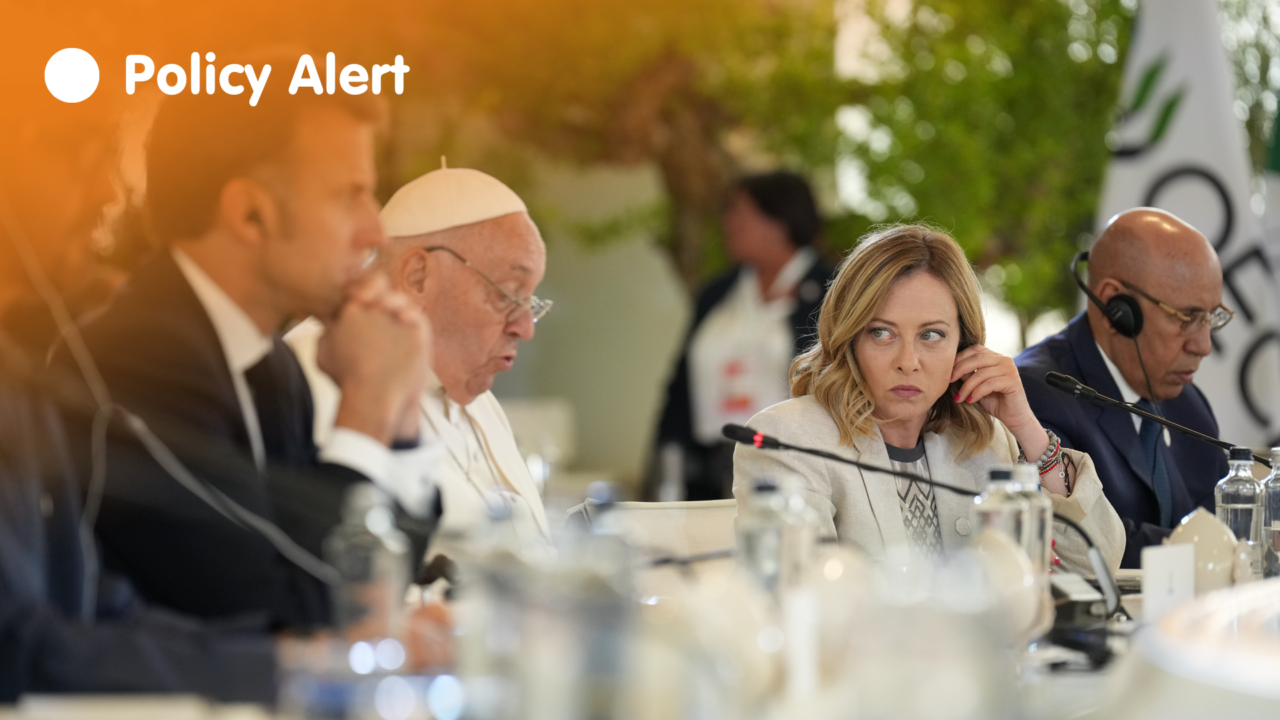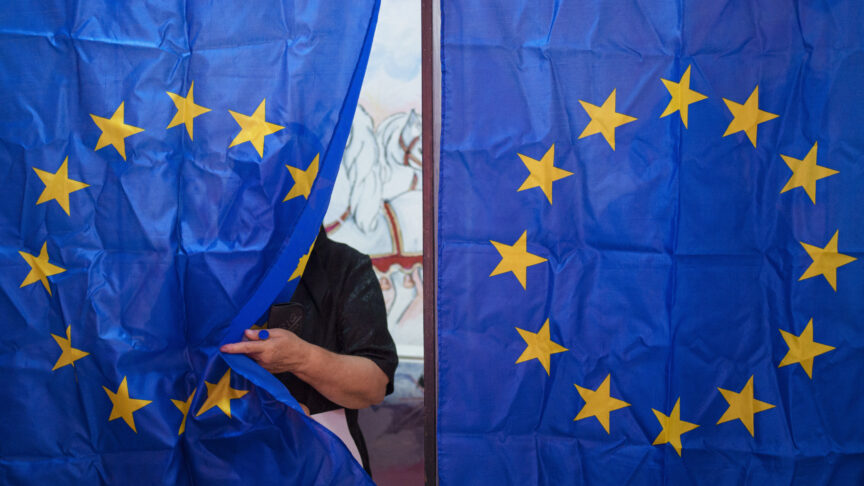Rome’s resolutions: Lessons from the G7 summit in Italy
The G7 summit in Italy was overshadowed by domestic and European politics. But the rest of the Italian presidency and its Canadian successor can build on this summit’s hits and address some of its misses
Domestic distractions
EU and member state leaders arrived at the G7 summit in Italy on 12-13 June bruised, battered, and completely distracted by their travails in domestic and European politics. France’s president, Emmanuel Macron, had suffered a stinging defeat to the far right in the European Parliament election and subsequently gambled on a snap national poll; the German chancellor Olaf Scholz and his party had undergone a rout of their own in the European election – meaning the Macron-Meloni-Scholz triangle was non-existent. European Council president Charles Michel was on his way out, while commission president Ursula von der Leyen wasn’t sure if she’d be able to stick around.
The summit resulted in three notable achievements on three big external challenges: Ukraine, Chinese support for Russia, and migration. But the missed opportunities elsewhere pose serious questions about the G7 format, which is becoming old, tried, and too vulnerable to the domestic ups and downs of its members.
Lessons learned
The rest of Italy’s presidency and that of its Canadian successor will likely meet similar challenges. But the G7 can still build on the hits of this year’s summit and address some of its misses:
- All G7 leaders should aim to ensure the group maintains a united front on support for Ukraine. There is great potential for Italy and Canada to cooperate on this to help prevent divisions and stave off war fatigue, particularly as Italy will host the Ukraine Recovery Conference in 2025. Italian-Canadian cooperation could also help to maintain momentum behind the G7’s decision in Italy to condemn Chinese support for Russia.
- Canada historically places considerable emphasis on equality and human rights. This should leave the Canadian presidency well placed to address the lack of progress on abortion access in this year’s final communique.
- The G7’s move over recent years to invite non-members such as India to its summits seems promising. Canadian leaders could continue with this inclusion with the aim of alleviating some of the scepticism in the global south about Western-led multilateralism and to keep pace with an increasingly geopolitical BRICS. In the long run, this could help break the G7 out of its 50-year-old model of exclusive internal dynamics.
Safe sparring
The European paralysis meant the United States largely directed negotiations at this year’s summit. Italy’s prime minister Giorgia Meloni, reinforced by her success in the European Parliament election, used the summit to position herself as a sparring partner for Joe Biden. Exercising her famous political pragmatism, she ensured the summit resulted in a strong commitment to Ukraine via plans for $50 billion in loans from Russian assets for Kyiv. Meloni’s agreement to condemn Chinese support for Russia was not preordained – given that she will visit Beijing in the coming weeks with no sign of a clear Italian policy on China. Meloni’s other contribution was the creation of an “Energy for Growth in Africa” initiative. Her aim here was to draw attention to Western states’ need to address the roots of irregular migration and people smuggling in partnership with countries of origin and transit.
The European Council on Foreign Relations does not take collective positions. ECFR publications only represent the views of their individual authors.



